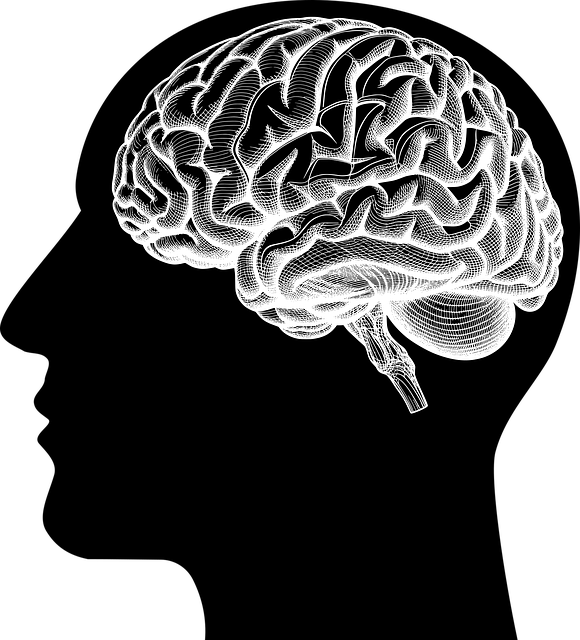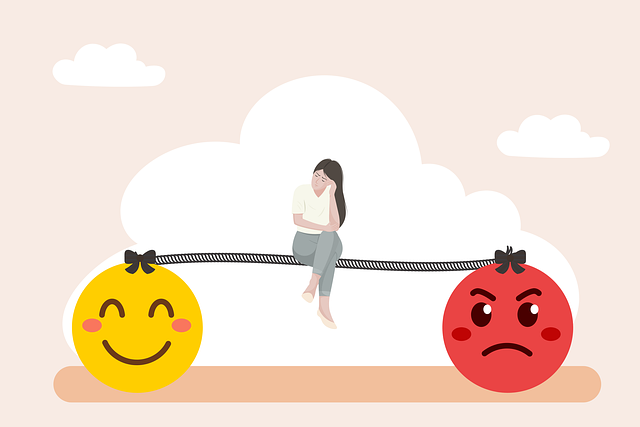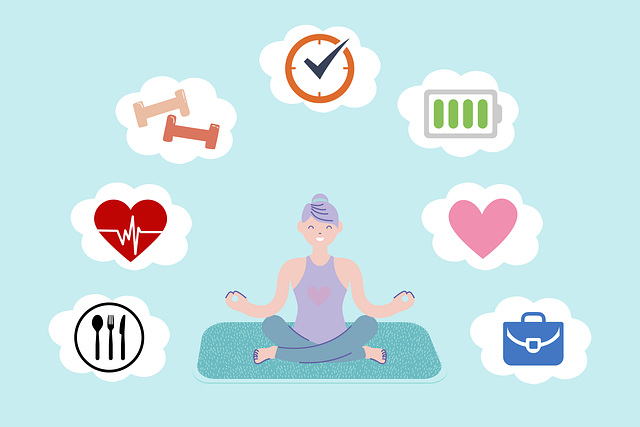Littleton Mindfulness Therapy emphasizes the importance of understanding mental wellness needs as a foundation for creating effective self-care routines. By identifying stressors and triggers, individuals can strategize their navigation through mindfulness techniques and journaling exercises. Self-care is an investment in overall mental health, involving dedicated time for activities like meditation, hobbies, physical activity, adequate rest, and balanced diets. Incorporating mindfulness practices into these routines reduces stress and promotes emotional healing, particularly beneficial for healthcare providers to prevent burnout. Personalized self-care routines aligned with individual needs and preferences ensure acts of self-love, fostering sustained mental wellness. Developing Emotional Intelligence (EI) and building resilience are key components for adapting to life's challenges and achieving lasting mental wellness, with Littleton Mindfulness Therapy offering tailored strategies for support.
In today’s fast-paced world, prioritizing mental wellness is paramount. This article guides you through crafting a personalized self-care routine, starting with understanding your unique mental wellness needs. We explore stressor identification and trigger management, essential practices for holistic well-being, and powerful mindfulness techniques from Littleton Mindfulness Therapy to enhance presence. Learn how to customize routines, ensuring they fit seamlessly into your lifestyle, and discover strategies to sustain progress over time.
- Understanding Your Mental Wellness Needs: Reflecting on Stressors and Triggers
- Building Blocks of a Self-Care Routine: Essential Practices for Mental Wellness
- Incorporating Mindfulness: Techniques from Littleton Mindfulness Therapy to Cultivate Presence
- Customizing Your Routine: Tailoring Self-Care Activities to Your Unique Lifestyle
- Sustaining and Tracking Progress: Strategies for Long-Term Mental Wellbeing
Understanding Your Mental Wellness Needs: Reflecting on Stressors and Triggers

Understanding your mental wellness needs is a crucial first step in developing an effective self-care routine. Reflect on your daily life and identify stressors and triggers that impact your emotional well-being. Perhaps it’s the constant buzz of social media, heavy traffic during your commute, or certain conversations that leave you feeling anxious. By recognizing these triggers, you can begin to strategize how best to navigate them.
Littleton Mindfulness Therapy offers guidance on mental wellness journaling exercises and anxiety relief techniques through their podcast series production. These tools provide a space for processing emotions, reflecting on stressors, and cultivating self-awareness—all essential components in creating a personalized self-care routine that supports your unique mental wellness journey.
Building Blocks of a Self-Care Routine: Essential Practices for Mental Wellness

Creating a self-care routine is an essential practice for maintaining mental wellness, and Littleton Mindfulness Therapy offers valuable insights into this process. The foundation of any effective self-care plan lies in incorporating key practices that nourish both mind and body. Start by setting aside dedicated time each day or week for activities that bring you peace and joy; this could be as simple as 10 minutes of meditation, engaging in a hobby, or practicing deep breathing exercises.
Regularity is crucial, so aim to make these moments consistent. Incorporate physical activity, such as walking or yoga, to release tension and boost endorphins, which can help alleviate anxiety and promote positive thinking. Additionally, ensure you’re getting sufficient rest and maintaining a balanced diet, as proper nutrition fuels both your body and mind. Remember, self-care isn’t just about treating symptoms; it’s an investment in your overall mental health, serving as a powerful tool for crisis intervention guidance and fostering resilience.
Incorporating Mindfulness: Techniques from Littleton Mindfulness Therapy to Cultivate Presence

Incorporating mindfulness into your self-care routine is a powerful tool for cultivating presence and combating mental wellness challenges. Littleton Mindfulness Therapy offers evidence-based techniques designed to help individuals navigate their emotions, reduce stress, and enhance overall well-being. Practicing mindfulness involves training your attention and awareness on the present moment without judgment, allowing you to detach from anxious thoughts or stressful situations.
This approach is particularly beneficial for healthcare providers who often face intense emotional demands through Burnout Prevention Strategies for Healthcare Providers. Incorporating mindfulness into their daily lives can aid in Emotional Healing Processes by providing a space for reflection and self-compassion. Furthermore, the techniques learned from Littleton Mindfulness Therapy can be applied to Mental Health Policy Analysis and Advocacy efforts, promoting greater resilience among those who work tirelessly to support others’ mental health.
Customizing Your Routine: Tailoring Self-Care Activities to Your Unique Lifestyle

Developing a self-care routine that aligns with your unique lifestyle is an integral part of prioritizing mental wellness. At Littleton Mindfulness Therapy, we understand that every individual has different needs and preferences when it comes to self-nurturing. Customizing your self-care practices means creating a personalized approach that resonates with your daily habits and passions. For instance, if you’re an early bird, incorporating morning meditation or journaling might be a perfect way to set a calm tone for the day ahead. On the other hand, a busy professional might prefer short mindfulness breaks during their day to recharge and refocus.
Incorporating self-care activities should not feel like a chore but rather a joyful act of self-love. Consider your energy levels, interests, and commitments when designing your routine. Perhaps you’re an avid hiker who finds solace in nature; integrating outdoor walks or forest bathing sessions can be a powerful addition. Or, if creative expression is your jam, sign up for an art class or start a sketchbook journal to nurture your artistic side. By tailoring self-care to your lifestyle, you’ll develop practices that sustain and support your mental wellness journey over time.
Sustaining and Tracking Progress: Strategies for Long-Term Mental Wellbeing

Sustaining mental wellness requires consistent effort and a long-term perspective. It’s not just about achieving a sense of calm or happiness; it’s about cultivating resilience and maintaining emotional balance over time. To achieve this, individuals can employ various strategies to track their progress and stay on course. One effective method is to incorporate Mental Wellness Journaling Exercises, providing space for self-reflection and tracking emotions, thoughts, and behaviors. This practice allows one to identify patterns, understand triggers, and celebrate small victories—all crucial aspects of sustaining mental wellness.
Additionally, Emotional Intelligence plays a pivotal role in long-term mental health. Developing emotional awareness enables individuals to respond rather than react to challenging situations, fostering better coping mechanisms. Building Resilience, the ability to adapt and bounce back from setbacks, is another key strategy. Through regular practice, individuals can enhance their emotional intelligence and resilience, ensuring they have the tools to navigate life’s twists and turns while maintaining a healthy mind. This journey often requires guidance from professionals like those at Littleton Mindfulness Therapy, who offer expert support and tailored strategies for lasting mental wellness.
Developing a personalized mental wellness self-care routine, incorporating techniques from Littleton Mindfulness Therapy, is a powerful tool for navigating life’s stressors and triggers. By reflecting on your unique needs, building essential practices into your daily life, and customizing activities to suit your lifestyle, you can foster long-term mental wellbeing. Remember, sustainability lies in tailoring your routine to fit seamlessly into your existing habits, allowing you to thrive with enhanced resilience and a deeper sense of calm.














